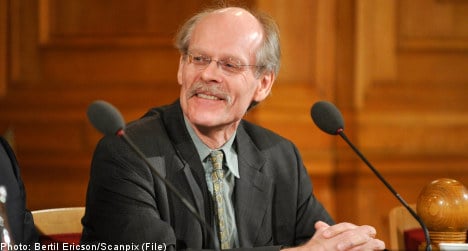“There are now signs that prospects have brightened and that exports and domestic demand in the Swedish economy are increasing again,” the bank said in a statement.
“The sentiment among households and companies is more positive and exports of goods have recently increased.”
In addition, the global economy is “growing at a relatively good pace” and the US economy is also showing signs of improvement.
“However, the situation on the financial markets in Europe is fragile,” the bank said, adding that “much work needs to be done” to help fix the fiscal woes of many debt-laden eurozone countries.
Thus, while the bank doesn’t see the need to further cut interest rates, it nevertheless lowered its forecast for 2012 Swedish GDP growth to 0.4 percent, down from 0.7 percent, and in line with forecasts unveiled in the government’s spring budget released earlier this week.
The Riksbank expects the Swedish economy to pick up slightly in 2013 and 2014, forecasting GDP growth rates of 1.9 percent and 2.8 percent, respectively.
Unemployment, however, is expected to rise slightly in 2012 to 7.7 percent and remain at that level through 2013 before dipping somewhat in 2014 to 6.9 percent.
Inflationary pressures are also expected to remain low for the remainder of 2012 before rising to 1.9 percent in 2013, nearly in line with the Riksbank’s 2 percent target.
While the Riskbank also announced the repo rate path remained unchanged, it held out the possibility for further rate cuts in the future, depending on developments in the global economy.
“There is considerable uncertainty about economic developments abroad,” the bank cautioned.
“The situation in the euro area is still problematic, and the public debt problems could worsen and have further negative effects on the Swedish economy.”
The Local/dl



 Please whitelist us to continue reading.
Please whitelist us to continue reading.
Member comments